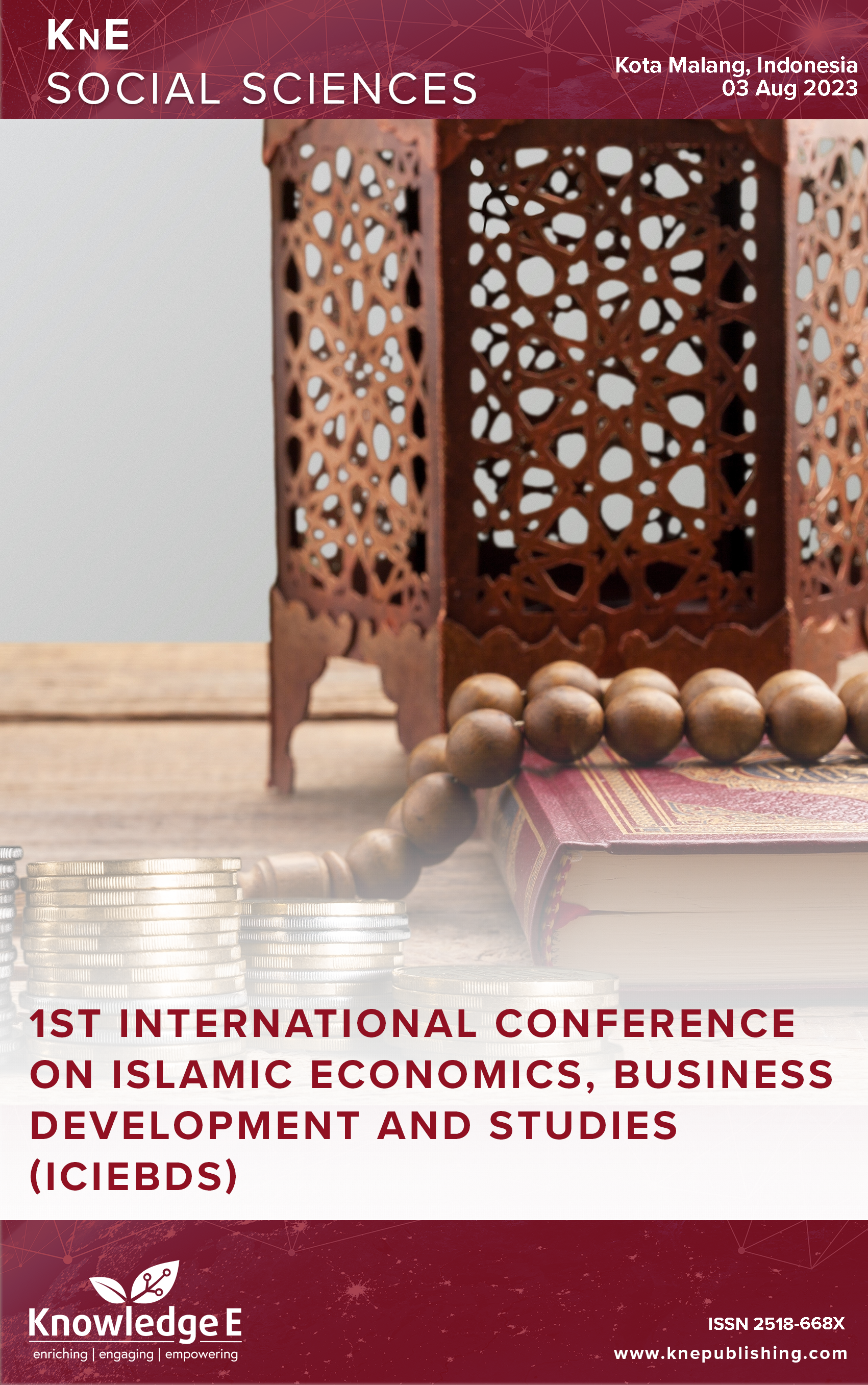Professional Scepticism, Auditor Experience, and Self-efficacy on Audit Judgement
DOI:
https://doi.org/10.18502/kss.v9i16.16232Abstract
In the performance of all audit tasks, auditors must adhere to pre-determined standards. In Indonesia, there have been cases of fraud related to auditors, including the case of fraud at SNP Finance in 2018. Such situations can arise due to incorrect audit judgment. Factors that may impact audit judgment include professional skepticism, auditor experience, and self-efficacy. A quantitative approach is used in this research. The study population consisted of auditors at public accountant firms in Bandar Lampung. During data collection, questionnaires were administered directly to external auditors. The data were analyzed using SmartPLS. The study revealed new evidence suggesting that professional skepticism only has a limited effect on aiding auditors in their audit judgments, even when combined with extensive auditor experience. This limitation can occur when the auditor has a short working period. Conversely, self-efficacy has been shown as a beneficial factor in helping auditors make well-informed audit decisions.
Keywords: professional skepticism, auditor experience, self-efficacy, audit judgment
References
“Kronologi SNP Finance dari ‘Tukang Kredit’ ke ‘Tukang Bobol,”’ CNN Indonesia, 2018.
“Jejak Hitam PT Hanson International, Manipulasi Laporan Keuangan 2016,” Kompas.id, 2020.
IAPI. Standar Auditing 200 (Revisi 2021) - Tujuan Keseluruhan Auditor Independen dan Pelaksanaan Audit Berdasarkan Standar Audit. Standar Profesional Akuntan Publik. Jakarta: Institut Akuntan Publik Indonesia; 2021. p. 14.
Maryani W, Ilyas F. Pengaruh Skeptisme, Pengalaman Auditor Dan Self Efficacy Terhadap Audit Judgment (Studi Empiris pada Auditor Badan Pengawasan Keuangan dan Pembangunan (BPKP) Perwakilan Provinsi Bengkulu). J. Akunt. 2017;7(3):35–52. DOI: https://doi.org/10.33369/j.akuntansi.7.3.35-52
Ta TT, Doan TN, Pham DC, Tran HN. Factors affecting the professional skepticism of independent auditors in Viet Nam. Cogent Bus. Manag. 2022;9(1):2059043. DOI: https://doi.org/10.1080/23311975.2022.2059043
Maghfirah I, Yahya MR. Pengaruh Kompleksitas Tugas, Self-Efficacy, dan Pengalaman Audit Terhadap Audit Judgement (Studi Pada Auditor BPK RI perwakilan Provinsi Aceh). J. Ilm. Mhs. Ekon. Akunt. 2018;3(2):276–88.
Haris HC, Datrini LK, Sastri II. Self-efficacy moderated the effect of professional skepticism, workload, and whistleblowing on fraud detection. Int J Health Sci (Qassim). 2022;6(March):304–10. DOI: https://doi.org/10.53730/ijhs.v6nS2.4966
Yowanda V, Kristina V, Pernando R, Sherly S, Erika E, Dinarianti R. Pengaruh Skeptisme, Pengalaman Auditor, dan Self Efficacy Terhadap Audit Judgement Pada Kantor Akuntan Publik di Medan. J. Ilm. ESAI. 2019;13(2):124–40. DOI: https://doi.org/10.25181/esai.v13i2.1306
Weiner B, Weiner B. Attribution Theory. Springer; 1985. DOI: https://doi.org/10.1007/978-1-4612-5092-0_7
V. Manusov and B. Spitzberg, Attribution Theory. na, 2008.
Pasaribu EM, Wijaya SY. Implementasi Teori Atribusi untuk Menilai Perilaku Kecurangan Akuntansi. J. Ekon. Dan Bisnis Univ. Pembang. Nas. Veteran Jakarta. 2017;4(1):1. DOI: https://doi.org/10.35590/jeb.v4i1.735
IAASB. Professional Skepticism in an Audit of Financial Statements. New York; 2018.
T. Suryanto, “Determinants of Audit Fee Based on Client Attribute, Auditor Attribute, and Engagement Attribute to Control Risks and Prevent Fraud: A Study on Public Accounting Firms in Sumatra-Indonesia,” Int. J. Econ. Bus. Adm., vol. II, no. Issue 3, pp. 27–39, 2014, https://doi.org/10.35808/ijeba/46. DOI: https://doi.org/10.35808/ijeba/46
Mlekus L, Bentler D, Paruzel A, Kato-Beiderwieden AL, Maier GW. “How To Raise Technology Acceptance: User Experience Characteristics as Technology- Inherent Determinants,” Grup. Interaktion. Organ. Zeitschrift fur Angew. Organ. 2020 Sep;51(3):273–83. DOI: https://doi.org/10.1007/s11612-020-00529-7
Suryanto T. Audit delay and its implication for fraudulent financial reporting: A study of companies listed in the Indonesian Stock Exchange. Eur Res Stud. 2016;19(1):18–31. DOI: https://doi.org/10.35808/ersj/503
Mohd Sanusi Z, Iskandar TM, Monroe GS, Saleh NM. Effects of Goal Orientation, Self- Efficacy and Task Complexity on The Audit Judgement Performance of Malaysian Auditors. Account Audit Account J. 2018;31(1):75–95. DOI: https://doi.org/10.1108/AAAJ-12-2015-2362
R. R. O. P. Putra and B. Suryono, “Faktor-Faktor yang Mempengaruhi Audit Judgement di Kantor Akuntan Publik Kota Surabaya,” J. Ilmu dan Ris. Akunt., vol. 6, no. 6, 2017.
I. Parhan and K. Kurnia, “Pengaruh Skeptisme Audit, Independensi dan Kompleksitas Tugas Terhadap Audit Judgment,” J. Ilmu dan Ris. Akunt., vol. 6, no. 12, 2017.
Tangke P, Ng S, Tungabdi E. Pengalaman, Kompleksitas Tugas dan Self Efficacy Sebagai Determinan Skeptisisme Profesional Untuk Membentuk Audit Judgment. Indones. J. Account. Gov. ISSN. 2020;2579(2):7573. DOI: https://doi.org/10.36766/ijag.v4i2.123
Hakim AL, Anwar S. Pengaruh Job Complexity, Job Knowledge dan Job Experience dengan Self-Efficacy Sebagai Variabel Moderasi Terhadap Audit Judgment. J. Ilm. Ekon. Glob. Masa Kini. 2021;12(2):112–26. DOI: https://doi.org/10.36982/jiegmk.v12i2.1423
Arens AA, Elder RJ, Beasley MS. Auditing and Assurance Services, Fifteenth. London: Pearson Education, Inc., 2014.
Y. J. Christiawan, “Kompetensi dan independensi akuntan publik: refleksi hasil penelitian empiris,” J. Akunt. dan Keuang., vol. 4, no. 2, pp. 79–92, 2002.
Chen G, Casper WJ, Cortina JM. The roles of self-efficacy and task complexity in the relationships among cognitive ability, conscientiousness, and work-related performance: A meta-analytic examination. Hum Perform. 2001;14(3):209–30. DOI: https://doi.org/10.1207/S15327043HUP1403_1
Chenhall RH. “Integrative Strategic Performance Measurement Systems, Strategic Alignment of Manufacturing, Learning and Strategic Outcomes: An Explanatory Study,” J. Account Organ Soc. 2005;30(5):395–422. DOI: https://doi.org/10.1016/j.aos.2004.08.001
Libby R, Luft J. Determinants of Judgment Performance in Accounting Settings: Ability, Knowledge, Motivation, and Environment. Account Organ Soc. 1993;18(5):425– 50. DOI: https://doi.org/10.1016/0361-3682(93)90040-D
Sari YM, Widyastuti S. Kompetensi Auditor dan Efektivitas Audit Syariah Internal dengan Dukungan Senior Manajemen sebagai Moderasi. J. Ris. Akunt. Komputerisasi Akunt. 2022;13(1):68–83. DOI: https://doi.org/10.33558/jrak.v13i1.3221

